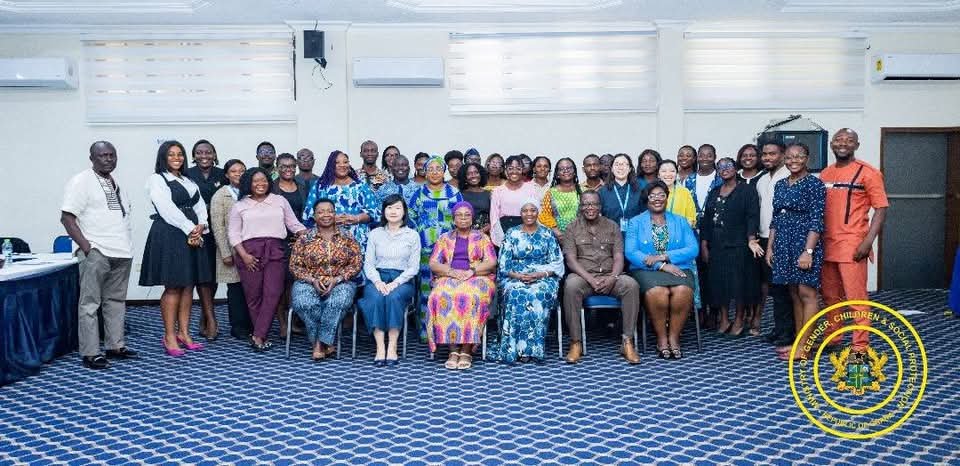News
Validation meeting on gender analysis of SBC interventions to end child marriage held

A validation meeting on the Gender Analysis of Social and Behaviour Change (SBC) programming for ending child marriage was held on Tuesday, April 8, 2025.
The meeting was organized by the Ministry of Gender, Children and Social Protection (MoGCSP), through its Child Marriage Unit, with support from UNICEF Ghana.
The event brought together key stakeholders from Metropolitan, Municipal and District Assemblies (MMDAs), the Commission on Human Rights and Administrative Justice (CHRAJ), UN agencies, civil society organizations, research institutions, and the media.
It served as a crucial platform to validate the findings of a recent gender analysis study commissioned under the UNFPA-UNICEF Global Programme to End Child Marriage.
In a welcome address delivered on behalf of the Ministry, the Head of the Child Marriage Unit, Madam Saphia Tamimu, underscored the importance of implementing gender-transformative approaches to eliminate child, early, and forced marriages.
She emphasized the need to ensure that Social and Behaviour Change programming reflects the lived experiences of girls and boys and empowers all actors, especially at the community level, to become agents of change.
The study under review focused on five key SBC interventions implemented across Ghana: the Ghanaians Against Child Abuse (GACA) social drive, the Child Protection Community Engagement Toolkit, Child Marriage-Free Community Alert Mapping, Engagement of Men and Boys Initiatives, and the Community Advocacy Toolkits.
The research team behind the study conducted 31 focus group discussions and 44 key informant interviews at various levels—community, district, and national—ensuring a diverse range of insights and perspectives.
The day’s agenda featured a series of engaging sessions including presentation of the study’s objectives, methodology, findings, and conclusions by the lead consultant, followed by a group work session where participants co-created actionable recommendations.
The meeting also featured a detailed presentation on the updated National Operational Monitoring and Evaluation Plan (2025–2026), with a focus on refining targets and indicators.
Participants deliberated on the study’s findings, refined recommendations, and built consensus to ensure ownership and effective integration into ongoing SBC efforts.
The meeting concluded with reflections on next steps for both the gender analysis and the revised M&E plan.